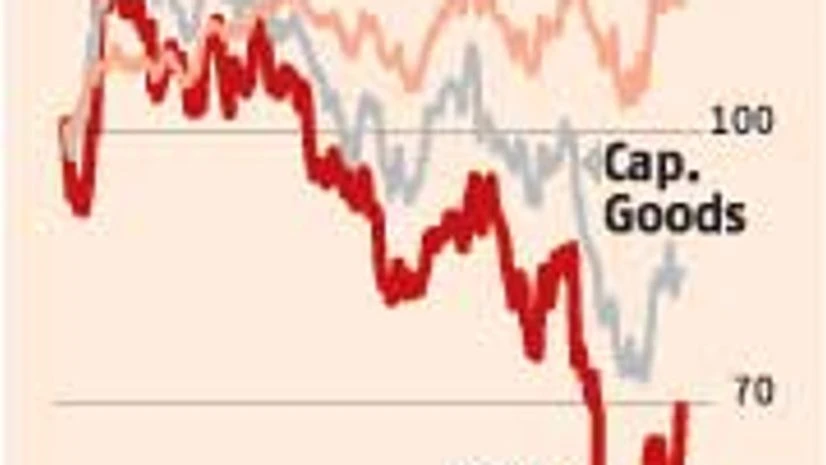A slew of measures announced by the government in the past week regarding increasing coal availability and awarding of more ultra mega power projects (UMPP) led to a sudden spurt in optimism for the sector. More particularly, the largest power equipment manufacturer BHEL saw its share price rise almost 15 per cent in a week; it has recovered by over 50 per cent from its recent lows of about Rs 100 on August 20.
Analysts believe that though government's measures have helped in improving sentiments, the near-term issues still remain and the fundamentals of BHEL are still weak. They also attribute the spurt in share price to short-covering in the stock because of the heavy selling seen in the past.
Post the spike in share price to Rs 150.40 currently, analysts now believe valuations are fair with some even advising investors to exit. “The stock has performed well from the dip with more than 50 per cent return in a month’s time. It is fairly priced at this level," said Rabindra Nath Nayak of SBICAP Securities. Misal Singh who tracks the company at Religare Capital Markets says, "We believe the current rally provides a good exit opportunity to investors".
What led to spurt?
It all started with the news that PFC will be inviting bids for two UMPPs of 4,000 Mw each shortly; this comes six years after the last UMPP was awarded. In addition, the government took measures towards auctioning of coal blocks to private sector and announced new norms for allocation of coal blocks. With the new norms in place, estimates suggest it could mean reserves of about two billion tonnes of coal being awarded to private players in the coming months, which will be enough to ignite about 8,000-10,000 Mw of power projects in the coming years.
These measures have three implications: Flow of new orders will be better, execution cycle will improve and finally, payment cycle will improve which is good for companies like BHEL. The Street also believes more measures could be announced in the coming month and boost sentiments further.

Analysts also believe that even if power is produced there should be enough demand for such costly power along with the ability of state distribution companies to pay dues. BHEL is already facing working capital issues. Recently, it had issued notices to some companies to recover dues, which stokes fear about possible write-off and cancellation of certain orders. And if that happens, it could have large implications on the company’s earnings and share price. On the flip side, domestic competitors, too, are facing similar problems and are stressed due to leverage, which puts BHEL in a relatively better position. Notably, the recent fall in rupee against the dollar also means foreign competitors, especially Chinese equipment makers, are losing out on their price advantage.

)
